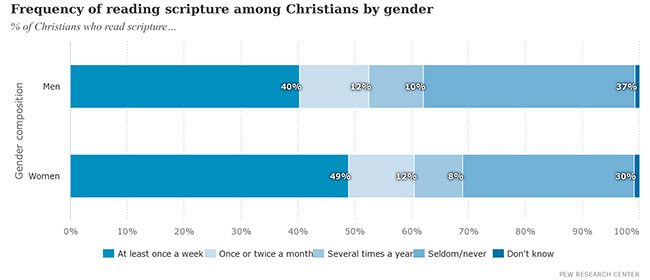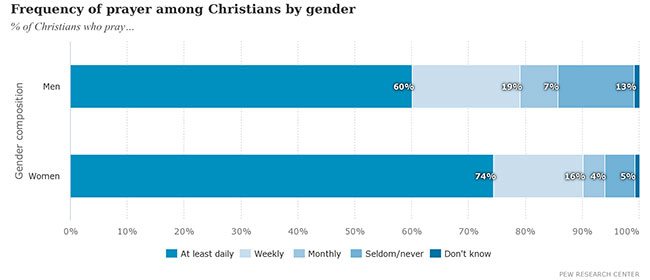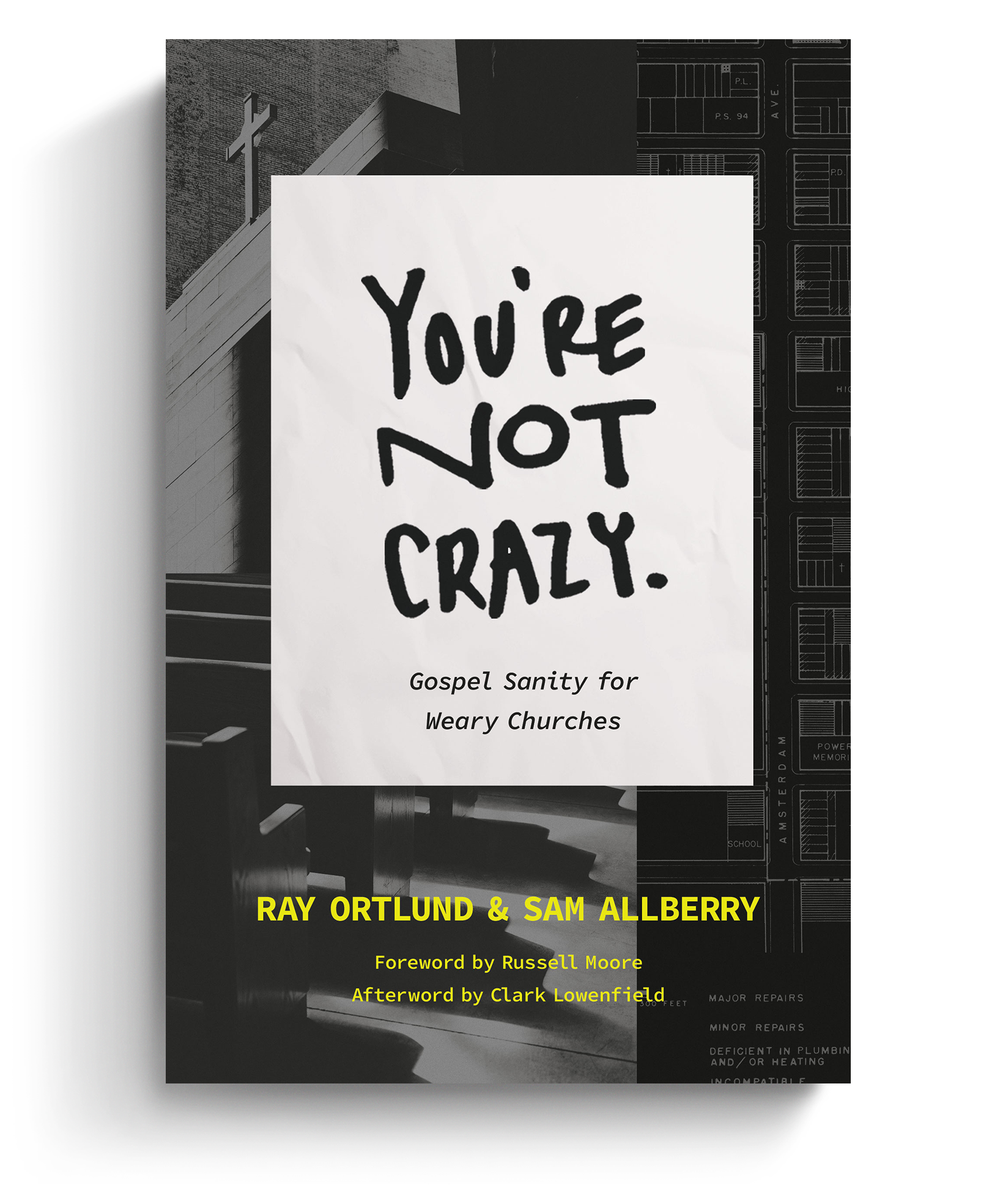The Story: Christian women in the United States are significantly more religious than Christian men, and this religion gender gap is greater than in a number of other developed nations, including Canada, the UK, Germany, and France.
The Background: As a study conducted by the Pew Research Center finds, based on a broad range of factors, Christian women in the United States express a higher level of religiosity and religious commitment than Christian men.
For example, more than seven-in-ten Christian women (72 percent) say religion is “very important” in their lives, compared with 62 percent of Christian men. Roughly eight-in-ten Christian women also say they are absolutely certain God exists and that the Bible is the Word of God, compared with about seven-in-ten men who say the same.
There is also a significant gender gap in private devotional habits. Almost three-quarters (74 percent) of Christian women say they pray at least daily, compared with six-in-ten men (60 percent). Almost all Christian women say they pray at least monthly (94 percent) compared to only 86 percent of men. And while half of Christian women say they go to church at least once a week, only 44 percent of men say the same.
Women are also more likely than men to read Scripture at least once a week (49 percent vs. 40 percent) and believe the Bible is the Word of God (78 percent vs. 72 percent).
What It Means: Why is there such a significant religious gap between the genders? Pew Research cites several explanations proposed by social scientists, such as changes in women’s labor force participation or educational attainment, the “time lag” in the way modern secularization has affected men and women, or that women are biologically more inclined to faith.
While there are likely to be numerous factors that influence this gap, I suspect the most important is the difference in Bible reading habits. Let’s take a closer look at the numbers for Bible reading and prayer.


Looking at these charts, we might conclude that the more a person prays the more likely they are to read the Bible. While this is a possibility, I think the causal relationship goes the other way. Think about the devotional habits of the professing Christians you know. How many pray but don’t read the Bible? How many read the Bible and yet do not pray?
In my experience—and I suspect yours is the same—I know a number of believers who pray and yet rarely if ever read Scripture, yet I do not know of any frequent Bible readers who do not also pray.
As Donald Whitney says, the most important spiritual discipline is “the intake of God’s Word. No factor is more influential in making us more like the Son of God than the Spirit of God working through the Word of God.” Whitney also adds that “of all the Spiritual Disciplines, Prayer is second only to the intake of God’s Word in importance.” Prayer is second in importance because it relies on our knowledge of God, which comes from reading his Word. Without engagement with Scripture, our prayers are lacking. It’s like having a phone conversation in which the other person can hear us but we can’t hear them.
Bible reading is of such importance that if women are reading Scripture more often than men, we should expect to see exactly the sort of gaps we find in other areas of their religious lives. So if we assume this causal relationship is true, what should we do about it?
While I don’t want to underestimate the complexity of addressing the problem, I think the core solution is to encourage Christian men to read their Bibles.
For decades (if not centuries) we’ve heard the problem is the feminization of the church—that the church’s music, messages, and ministries cater to women rather than men. But what if the problem—and solution—is more basic? What if women are more inclined to pray, attend church, and say their faith is very important to them simply because they’ve first taken the time to encounter God in his Word?
Are You a Frustrated, Weary Pastor?
 Being a pastor is hard. Whether it’s relational difficulties in the congregation, growing opposition toward the church as an institution, or just the struggle to continue in ministry with joy and faithfulness, the pressure on leaders can be truly overwhelming. It’s no surprise pastors are burned out, tempted to give up, or thinking they’re going crazy.
Being a pastor is hard. Whether it’s relational difficulties in the congregation, growing opposition toward the church as an institution, or just the struggle to continue in ministry with joy and faithfulness, the pressure on leaders can be truly overwhelming. It’s no surprise pastors are burned out, tempted to give up, or thinking they’re going crazy.
In ‘You’re Not Crazy: Gospel Sanity for Weary Churches,’ seasoned pastors Ray Ortlund and Sam Allberry help weary leaders renew their love for ministry by equipping them to build a gospel-centered culture into every aspect of their churches.
We’re delighted to offer this ebook to you for FREE today. Click on this link to get instant access to a resource that will help you cultivate a healthier gospel culture in your church and in yourself.
































